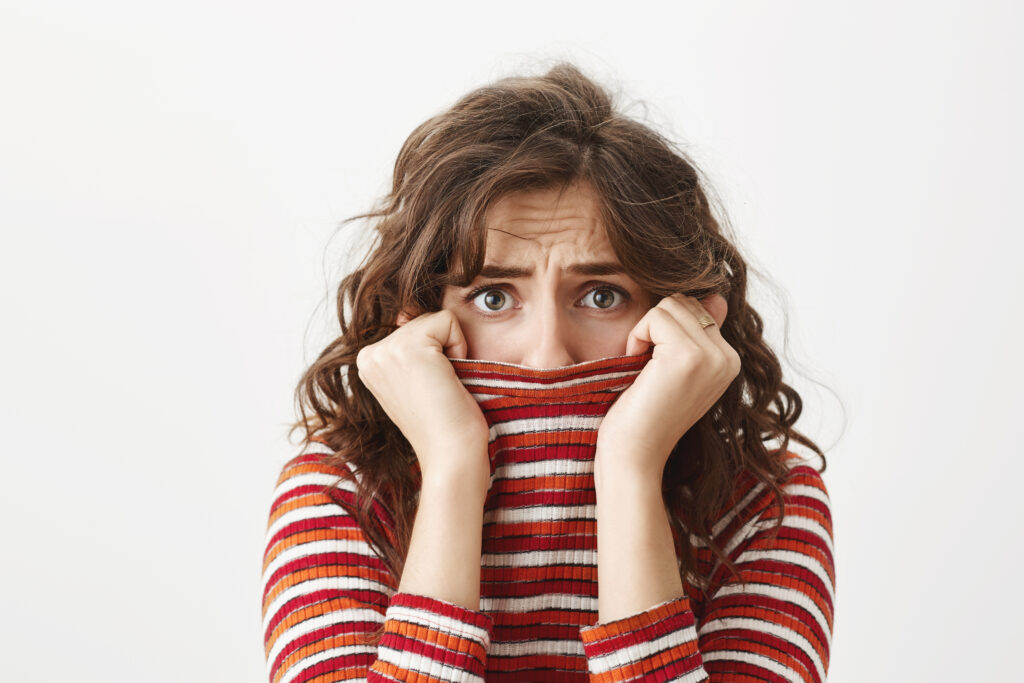Panic attacks are a common mental health condition that affects millions of people around the world. They are characterized by sudden and intense feelings of fear and anxiety, often accompanied by physical symptoms such as chest pain, shortness of breath, and heart palpitations. Panic attacks can be extremely distressing and disruptive to daily life, but with the right treatment and support, it is possible to manage them effectively.
In this article, we will explore what panic attacks feel like, their causes, and some home remedies and treatment options for managing them. What Does a Panic Attack Feel Like?
The experience of a panic attack can vary from person to person, but some common symptoms include:
- Intense fear or anxiety
- Racing heartbeat or palpitations
- Chest pain or tightness
- Shortness of breath or hyperventilation
- Sweating or trembling Nausea or stomach upset
- Dizziness or lightheadedness
- Tingling or numbness in the hands or feet
- Fear of losing control or going crazy
- Fear of dying
Panic attacks usually come on suddenly and reach their peak within a few minutes. They can be triggered by a specific situation or object, or they may seem to come out of nowhere. Some people may experience recurring panic attacks, while others may have just one or two in their lifetime.
Panic Attack Causes
The exact cause of panic attacks is not fully understood, but it is thought to be related to a combination of genetic, environmental, and psychological factors. Some potential causes of panic attacks include:
- Family history of anxiety or panic disorders
- Traumatic life events, such as abuse or a natural disaster
- Chronic stress or anxiety
- Medical conditions, such as thyroid problems or heart disease
- Substance abuse or withdrawal
- Certain medications or supplements
It is important to note that not everyone who experiences these risk factors will develop panic attacks, and not everyone who experiences panic attacks will have these risk factors.
Home Remedies for Panic Attacks
If you experience panic attacks, there are several home remedies that may help you manage your symptoms. These include:
Deep breathing:
Slow, deep breathing can help calm your body and reduce feelings of anxiety. Consider attempting to take slow, deep breaths by inhaling through your nose and exhaling through your mouth.
Progressive muscle relaxation:
It is a technique that involves deliberately tensing and then relaxing different muscle groups in your body. This process usually begins with your toes and gradually works its way up to your head. By doing so, you may be able to release any built-up tension in your muscles and achieve a greater sense of relaxation.
Mindfulness meditation:
It is a type of meditation where you concentrate your attention on the present moment in a non-judgmental way. There are numerous resources and mindfulness meditation apps accessible online to aid in your practice.
Exercise:
Regular exercise can help reduce stress and anxiety, and improve your overall mood. Attempt to engage in moderate-intensity exercise for a minimum of 30 minutes on most days of the week.
Aromatherapy:
Certain essential oils, such as lavender or chamomile, may help reduce feelings of anxiety. You can use a diffuser, or apply the oil to your skin or clothing.
Herbal supplements:
Some natural supplements, such as valerian root or passionflower, may help reduce feelings of anxiety.
Before taking any supplements, it is crucial to consult with your doctor as they may cause interactions with other medications or result in side effects. While these home remedies may help reduce symptoms of panic attacks, they are not a substitute for professional treatment. If you experience frequent or severe panic attacks, it is important to seek help from a mental health professional.
Remedies for Panic Attacks
There exist several effective treatments for panic attacks, which include:
Cognitive-behavioral therapy (CBT): This type of therapy focuses on identifying and changing negative thought patterns and behaviors that contribute to panic attacks.
Desensitization is another treatment option that may be effective for some people with panic attacks. This refers to the gradual exposure to situations or objects that may trigger your panic attacks within a controlled and supportive environment. Over time, this can help you become less sensitive to these triggers and reduce your anxiety.
Medication may also be helpful in managing panic attacks. Antidepressants, anti-anxiety medications, and beta-blockers are some of the medications that may be prescribed. It is important to talk to your doctor about the potential benefits and risks of medication and to follow their instructions carefully.
Managing Panic Attacks
Managing panic attacks can be challenging, but with the right treatment and support, it is possible to live a fulfilling and enjoyable life. Here are some tips for managing panic attacks:
- Practice self-care: Make sure to take care of your physical and emotional health, by getting enough sleep, eating a healthy diet, and engaging in activities that you enjoy.
- Build a support network: Having supportive friends and family members can make a big difference in managing panic attacks. Consider joining a support group or seeking help from a mental health professional.
- Learn relaxation techniques: Practice deep breathing, progressive muscle relaxation, or mindfulness meditation regularly to help reduce feelings of anxiety.
- Challenge negative thoughts: When you experience negative thoughts that trigger your panic attacks, try to challenge them by asking yourself if they are realistic and helpful.
- Stay active: Regular exercise can help reduce stress and anxiety, and improve your overall mood.
- Avoid triggers: Try to identify the situations or objects that trigger your panic attacks, and avoid them if possible. If you cannot avoid them, try desensitization techniques to help reduce your anxiety.
Conclusion
Panic attacks can be a frightening and distressing experience, but with the right treatment and support, it is possible to manage them effectively. Home remedies such as deep breathing, progressive muscle relaxation, and exercise can be helpful in reducing symptoms, but they are not a substitute for professional treatment. Cognitive-behavioral therapy, desensitization, and medication are some of the treatment options available. It is important to practice self-care, build a support network, and challenge negative thoughts in order to manage panic attacks effectively.




